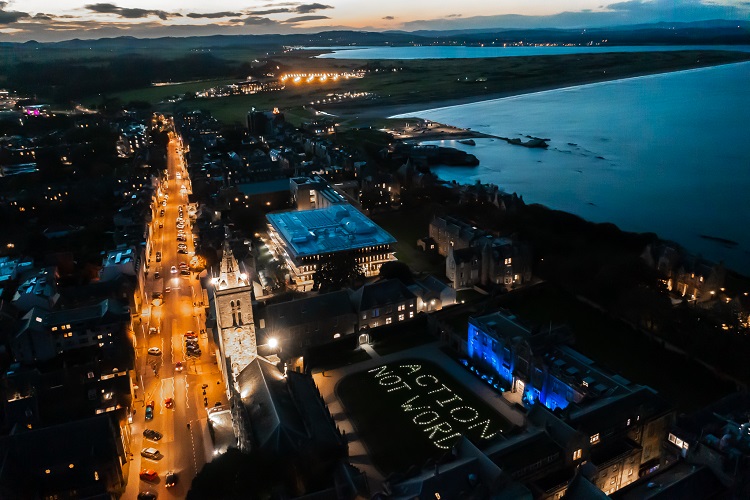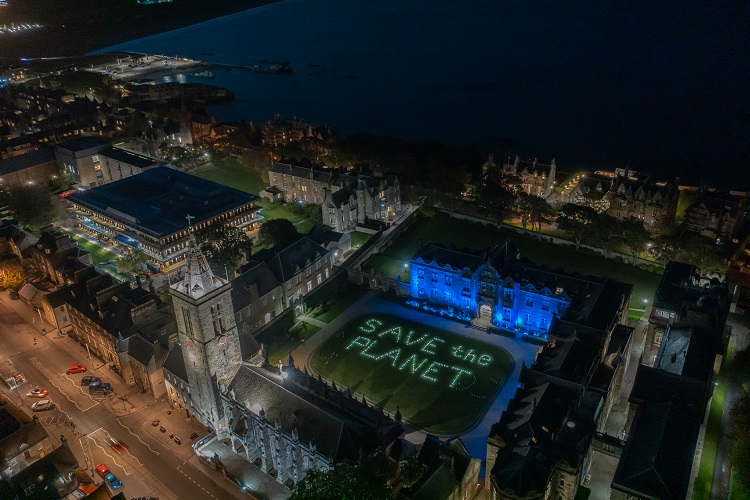Action not words – messages of hope for COP26

Students at Scotland’s oldest university have sent a powerful message to world leaders ahead of COP26: a demand for ‘Action Not Words’ picked out in solar-powered lights is captured by a drone high above St Salvator’s Quad at the University of St Andrews.
Building on the success of the award-winning Light It Forward campaign, the University of St Andrews and Liter of Light launched Human-Powered Messages of Hope for COP26.
Created using recycled materials, the solar-powered lights were used to create powerful, large-scale messages ahead of the global climate conference starting in Glasgow on Sunday 31 October.
St Andrews was one of the first universities in the UK to pledge itself to the fight against climate change, determining to be net zero for carbon emissions by 2035.
The striking, large-scale messages of hope created by St Andrews include: ‘Action not words’, ‘Net Zero 2035’ and ‘Save the Planet’.
Liter of Light is a global, grassroots movement committed to providing affordable, sustainable solar light to people with limited or no access to electricity. Through a network of partnerships around the world, Liter of Light volunteers teach marginalised communities how to use recycled plastic bottles and locally sourced materials to illuminate their homes, businesses and streets.
Professor Ineke De Moortel, Assistant Vice-Principal (Dean of Science) added: “We know that the future is our students and the biggest impact we can have as a university is through our students. What we are seeing here is their messages, their hopes to the leaders coming to COP26, and their hopes for the future.”
Liter of Light was the proud recipient in 2016 of the University’s prestigious St Andrews Prize for the Environment. The Prize is an environmental initiative led by St Andrews that recognises global projects making significant contributions to environmental issues and concerns, with a focus on sustainability, conservation, biodiversity, and community development.
The lights used in the campaign will go to communities in Senegal, allowing people to remove dangerous, expensive and dirty kerosene lamps from their homes, and providing clean and sustainable solar light.

Category Sustainability